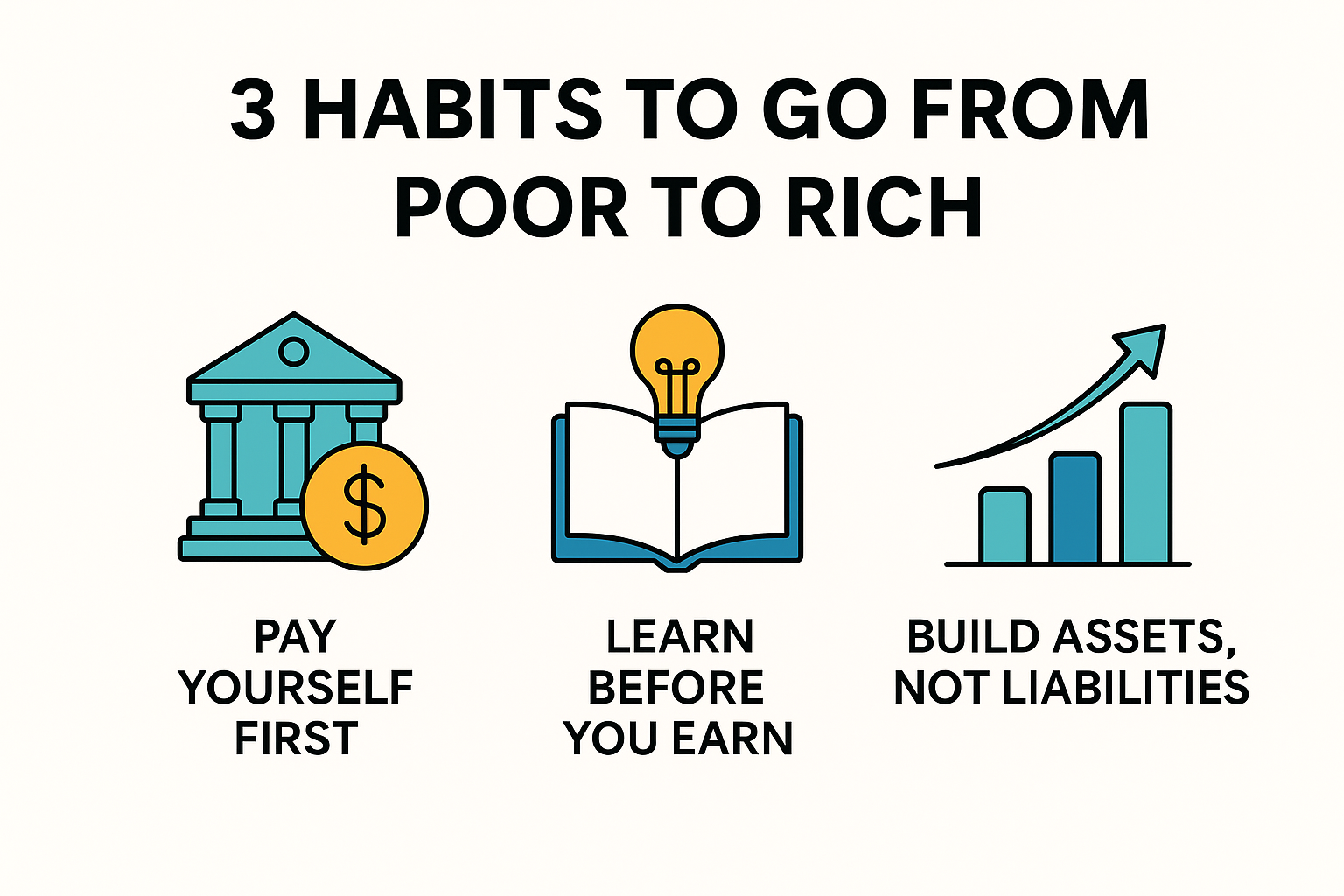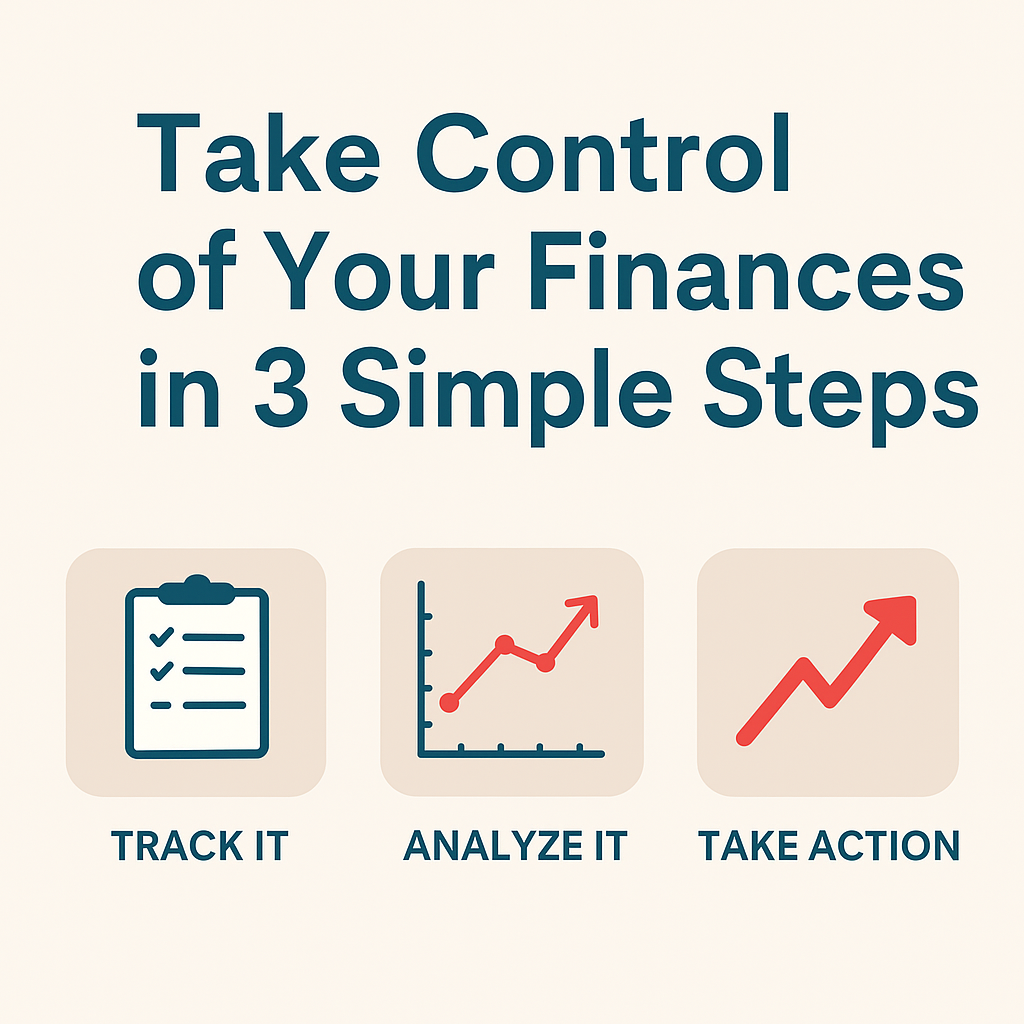💰 1. Pay Yourself First
Deep Dive: The Foundation of Wealth Discipline
🔍 What it really means:
This is not just “saving money” — it’s prioritizing your future self over your present temptations. It’s about creating space to build wealth before life’s expenses eat it all up.
🧠 Psychology:
Most people work for money. The wealthy use money to work for them. Paying yourself first flips the script from reactive to proactive. It creates a habit loop of delayed gratification — the superpower of every successful investor.
🛠️ Practical Ways to Apply:
- Automate transfers into:
- A high-yield savings account (for emergencies or short-term goals).
- A Roth IRA / 401(k) (for tax-free/tax-deferred growth).
- A brokerage account (for long-term investing).
- Start with a percentage — even 1% of your income is better than zero. Grow it gradually.
- Treat this like a non-negotiable bill to your future. Because, well, it is.
💡 Bonus Insight:
You’re already paying others first — your landlord, your grocery store, your favorite boba shop. It’s time you owed yourself first.
📚 2. Learn Before You Earn
Deep Dive: The Compounding Power of Financial Literacy
🔍 What it really means:
The rich don’t just have money. They understand money. They treat financial knowledge like a lifelong course — not a one-time crash class when things go south.
🧠 Psychology:
You can’t change your behavior without changing your belief system. Learning reprograms how you think about:
- Risk
- Spending
- Time
- Value
- Opportunity
🛠️ Practical Ways to Apply:
- Daily/Weekly learning ritual:
- Podcasts on the commute (ChooseFI, Afford Anything, The Ramsey Show)
- 10 pages/day from a finance or mindset book
- YouTube channels like Graham Stephan or Minority Mindset
- Track your own financials monthly:
- Know your net worth, your savings rate, and your debt.
- Awareness is the beginning of control.
- Surround yourself with “money-smart” voices — books, mentors, online communities.
💡 Bonus Insight:
You can lose money, and make it back. But if you lose your financial knowledge, it’s like deleting the map and compass from your journey. Learn once, apply forever.
📈 3. Build Assets, Not Liabilities
Deep Dive: The Path to Passive Income and Financial Freedom
🔍 What it really means:
Assets produce income or appreciate over time. Liabilities drain your cash flow. A poor person often buys to feel rich; a rich person buys to stay rich.
🧠 Psychology:
It’s hard to not buy the new iPhone, or those Nike drops, when you feel like you’ve “earned it.” But shifting from consumer to owner is a mindset that requires constant practice and exposure to new possibilities.
🛠️ Practical Ways to Apply:
- Start small: Buy a share of an ETF like $VOO or $SCHD — you now own a piece of American capitalism.
- Build “money machines”:
- Dividend stocks
- REITs (Real Estate Investment Trusts)
- Online content (books, courses, videos, etc.)
- Rental property (eventually)
- Review your spending monthly: Did I buy assets this month or liabilities?
🔥 Real-Life Comparison:
| Purchase | Asset or Liability? | Why |
|---|---|---|
| New car (on a loan) | Liability | Depreciates, costs money monthly |
| Used car (paid in cash) | Less of a liability | Still costs, but manageable |
| VOO shares | Asset | Appreciates, dividends |
| Amazon dropshipping biz | Asset (potentially) | Generates income with effort |
| New TV | Liability | Costs money, doesn’t return value |
💡 Bonus Insight:
The poor spend to feel rich. The rich invest to become richer. One chases pleasure, the other builds freedom.
🔁 Put It All Together:
If you pay yourself first, you’ll have capital.
If you educate yourself, you’ll know what to do with that capital.
If you build assets, you’ll create wealth that earns while you sleep.
And that, my friend, is how the cycle of poverty breaks — and the journey to generational wealth begins.
Related Articles:
- Warren Buffett Says S&P 500 Could’ve Made Him Richer
- Habits of the Rich vs. the Poor: Understanding the Contrasts
Financial Disclaimer
The information provided on HelpyYourFinances.com is for general informational purposes only and is not intended to be financial advice. While we strive to ensure the accuracy and reliability of the content, it is important to remember that financial decisions are personal and should be tailored to your individual circumstances.
We strongly recommend that you consult with a qualified financial advisor or other professional before making any financial decisions. The content on this website should not be considered a substitute for professional financial advice, analysis, or recommendations. Any reliance you place on the information provided is strictly at your own risk.



